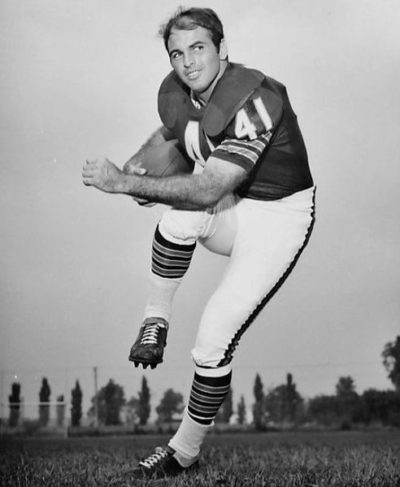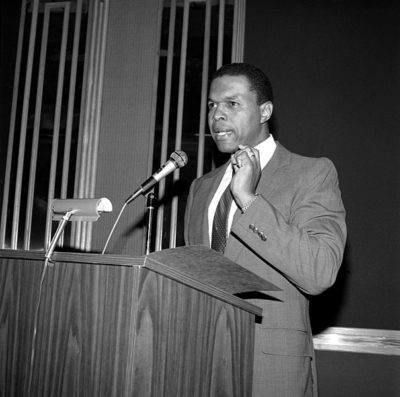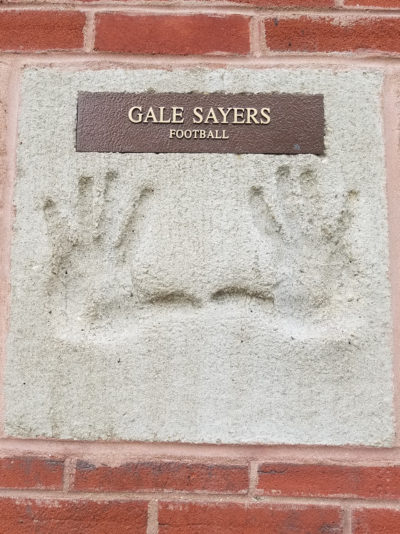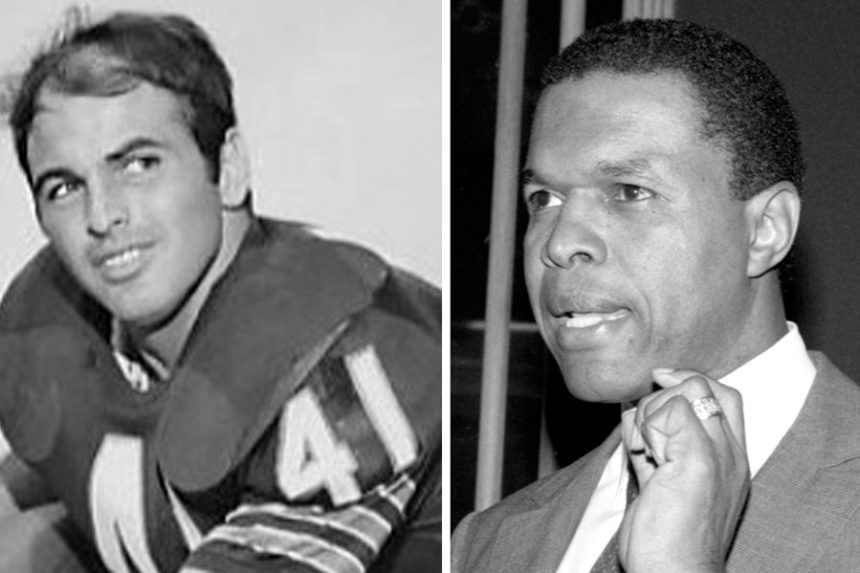Brian Piccolo’s short life was one marked by the unlikely. As a white NFL rookie running back in the 1960s, he found himself roommates with Gale Sayers, a Black player vying for the same position. Their bond defied the turmoil of the day, and the two became best friends while both holding down significant offensive positions for the Chicago Bears. Tragically, that same improbability extended to Piccolo’s health, as he was diagnosed with cancer in 1969. After Piccolo’s death in 1970, the ABC network made a television movie about his life and friendship with Sayers. Brian’s Song debuted to massive ratings and universal acclaim in 1971, and 50 years later, it remains one of the most revered films of its kind.

Gale Sayers emerged from college a football star. A two-time All-American with more than 4,000 yards to his credit, Sayers was selected in the first round of the 1965 NFL Draft, landing with the Chicago Bears. Brian Piccolo signed with the Bears as a free agent at the same time. Despite being the ACC Player of the Year and the nation’s leading rusher in college football in 1964, Piccolo had gone undrafted (a situation that many observers attributed to his height, under six feet, rather than his ability). Though he was initially only on the practice squad, Piccolo would eventually earn the job of Sayers’s back-up on the main roster.

A break-out star on a struggling team, Sayers captured national attention with his rushing and occasional receiving. Multiple press outlets, like the AP and UPI, acclaimed him as the NFL Rookie of the Year. By his second season, he’d won the league’s rushing title and earned his second Pro Bowl selection. During the 1967 season, Piccolo got a chance to get on the field more, sharing rushing duties. Around this time, the team leadership developed a notion that players of the same position should be roommates. Sayers and Piccolo were paired up, becoming the first integrated roommates in the league. Unfortunately, in 1968, Sayers suffered a season-ending right-knee injury after leading the NFL in rushing for the first nine weeks; Piccolo replaced Sayers in the line-up, but also dedicated himself to helping his friend through the grueling physical rehabilitation process to get him back on the field. Though Sayers returned at halfback, the offense was reconfigured so that Piccolo could start at fullback. The best friends regularly were on the field together for the first time.
In November of 1969, Piccolo had trouble breathing during a game and voluntarily withdrew. The team sent him for an exam, and it revealed embryonal cell carcinoma in his lung. Piccolo had that tumor removed, then ended up having another surgery that took out his left lung and pectoral muscle. Sayers was a constant source of support for Piccolo and his wife, Joy; Sayers even donated blood for his friend’s surgery.
As Piccolo was struggling with cancer, Sayers was set to be honored by the sporting press with the 1969 George S. Halas Courage Award due to his remarkable comeback and performance after his knee injury. At the ceremony on May 25, 1970, Sayers gave a speech that would later be immortalized on film. He said, in part:
…[Brian Piccolo] has the heart of a giant and that rare form of courage that allows him to kid himself and his opponent: cancer. He has the mental attitude that makes me proud to have a friend who spells out the word ‘courage’ twenty-four hours a day, every day of his life. You flatter me by giving me this award, but I tell you that I accept it for Brian Piccolo. It is mine tonight, it is Brian Piccolo’s tomorrow… I love Brian Piccolo, and I’d like all of you to love him too. Tonight, when you hit your knees, please ask God to love him.
Sadly, the cancer had spread even further by that point, and Brian Piccolo died on June 16, 1970. He was 26.
The trailer for Brian’s Song (Uploaded to YouTube by Trailer Chan)
Sayers’s speech struck a national chord. In his memoir, I Am Third, he discussed his friendship with Piccolo. Producer Paul Junger Witt developed the story for a TV film; written by William Blinn and directed by Buzz Kulik, Brian’s Song ran 50 years ago this week on ABC. Billy Dee Williams played Sayers, and James Caan was Piccolo. The TV movie was briefly the most-watched television film ever (until it was supplanted by The Night Stalker the following year).It was so successful that it even received a limited-run engagement in movie theatres after its airing. The film was nominated for 11 Emmys and won five, including Outstanding Single Program. The movie’s theme, “Hands of Time” by Michel Legrand, hit the Hot 100 and won a Grammy for Best Instrumental Composition. Today, the film is considered both one of the finest films ever made for television and one of the best sports films of all time; in TV (The Book): Two Experts Pick the Greatest American Shows of All Time, critics Matt Zoller Seitz and Alan Sepinwall listed it at number five on their list of the greatest American TV movies.

Brian’s Song resonated because of its truth. It wasn’t just a true story. It was true representation of the vaue that friendship can have. Brian Piccolo helped Gale Sayers overcome an injury so that he could come back to his Hall of Fame career. And Sayers was there for his friend in his darkest hours. That bond went beyond distinctions of race or ability on the field. It was pure and powerful and admirable. And both their story and the film continue to endure because they have real meaning. Gale Sayers loved Brian Piccolo, and he wanted you to love him, too.
Become a Saturday Evening Post member and enjoy unlimited access. Subscribe now



